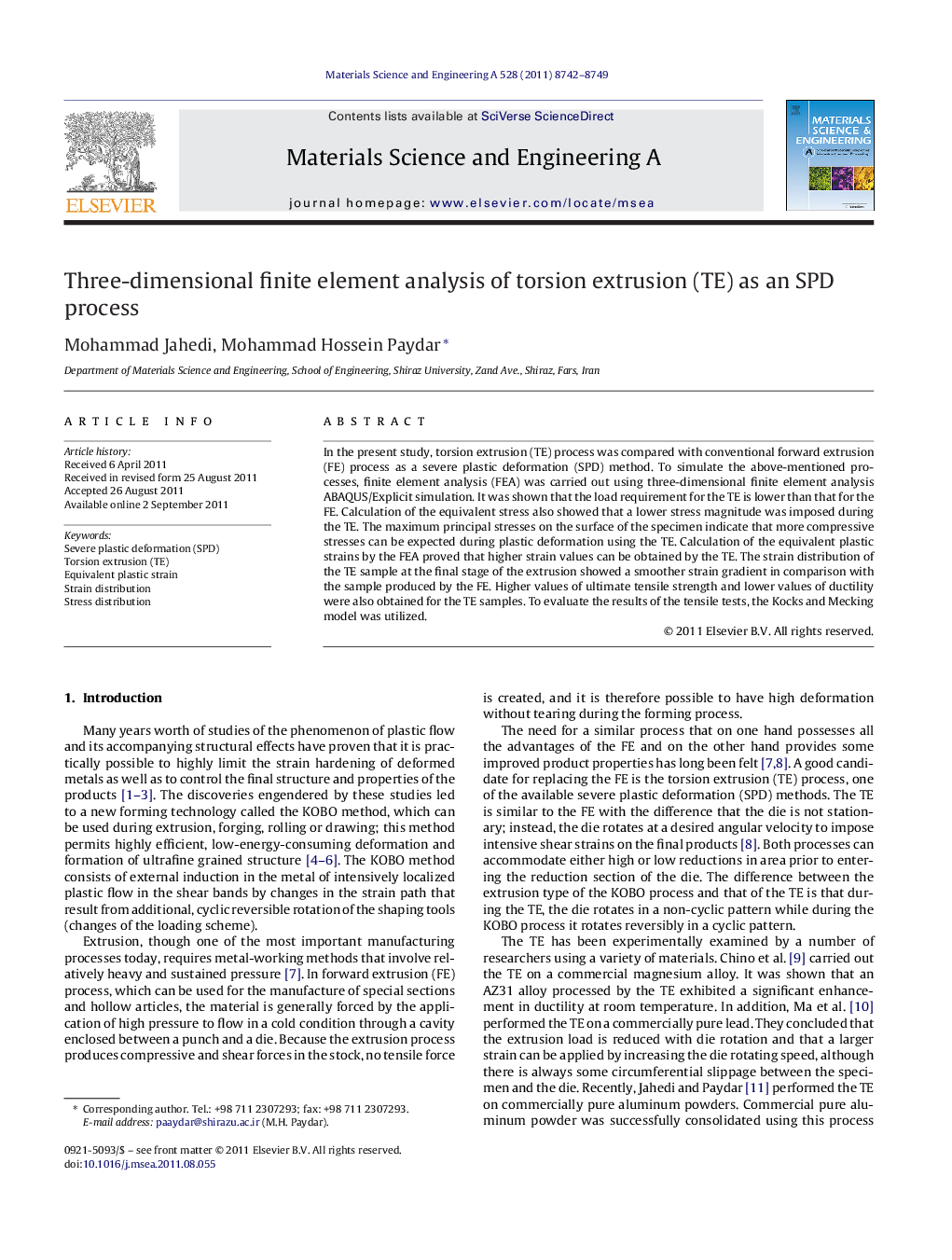| Article ID | Journal | Published Year | Pages | File Type |
|---|---|---|---|---|
| 1578106 | Materials Science and Engineering: A | 2011 | 8 Pages |
In the present study, torsion extrusion (TE) process was compared with conventional forward extrusion (FE) process as a severe plastic deformation (SPD) method. To simulate the above-mentioned processes, finite element analysis (FEA) was carried out using three-dimensional finite element analysis ABAQUS/Explicit simulation. It was shown that the load requirement for the TE is lower than that for the FE. Calculation of the equivalent stress also showed that a lower stress magnitude was imposed during the TE. The maximum principal stresses on the surface of the specimen indicate that more compressive stresses can be expected during plastic deformation using the TE. Calculation of the equivalent plastic strains by the FEA proved that higher strain values can be obtained by the TE. The strain distribution of the TE sample at the final stage of the extrusion showed a smoother strain gradient in comparison with the sample produced by the FE. Higher values of ultimate tensile strength and lower values of ductility were also obtained for the TE samples. To evaluate the results of the tensile tests, the Kocks and Mecking model was utilized.
► Finite element analysis was successfully performed on the TE and FE processes. ► Lower values of equivalent stresses have been found for the TE samples. ► Smoother strain gradient can be considered on the TE samples. ► TE samples show superior tensile strength and lower ductility in the tensile test.
